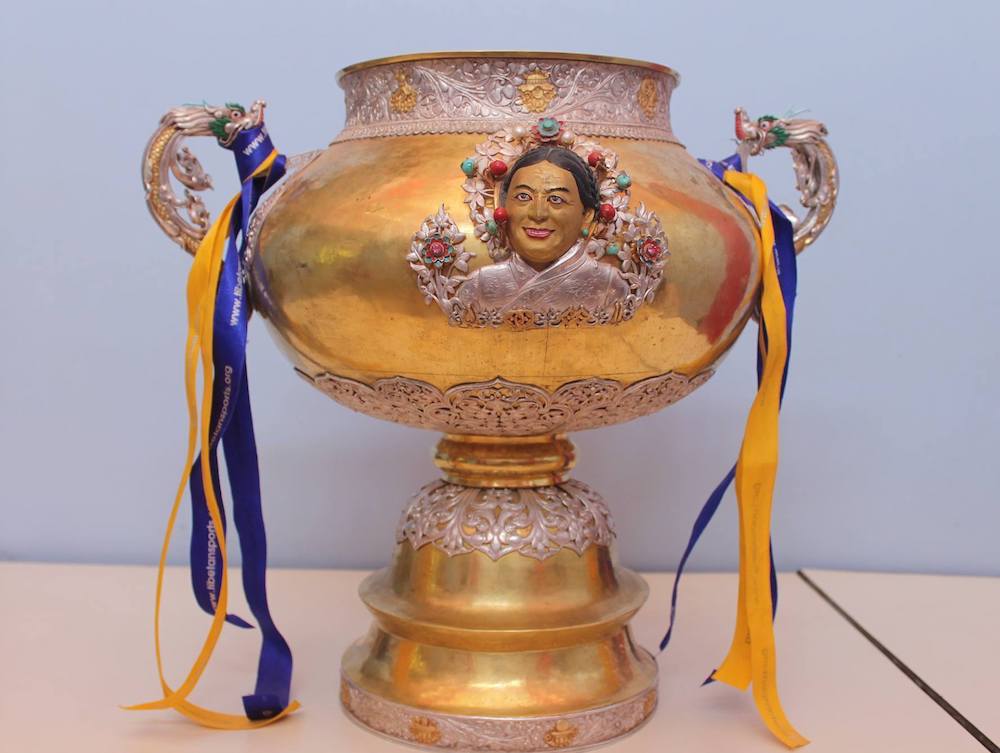By Phuntsok Yangchen
 DHARAMSHALA, January 11: Tibetan spiritual leader His Holiness the Dalai Lama concluded four days of teachings on Shantideva’s A Guide to the Boddhisattva’s Way of Life (Chodjug) in the sacred Indian town of Sarnath in Uttar Pradesh, Thursday.
DHARAMSHALA, January 11: Tibetan spiritual leader His Holiness the Dalai Lama concluded four days of teachings on Shantideva’s A Guide to the Boddhisattva’s Way of Life (Chodjug) in the sacred Indian town of Sarnath in Uttar Pradesh, Thursday.
Thousands of devotes from more than 30 countries, including Tibetans and Buddhists from all corners of India received the teachings.
On the last day of the teachings, His Holiness gave Avalokiteshvara empowerment belonging to the lotus lineage and noted that that Tibetans have a special connection with him. As a preliminary to the empowerment, the Dalai Lama first gave the vows of a lay person, and then conducted a ceremony to generate the aspiring awakening mind, followed by the bodhisattva vows.
Following the empowerment, a ceremony to offer long life prayers for the Dalai Lama was led by Jangtse Choje Lobsang Tenzin.
Speaking during the teachings, the 77-year-old Tibetan spiritual leader spoke on the beginning of monastic tradition in Tibet and the difference between the monk’s robes and tantrik’s robes.
“In the 8th century, Shantarakshita, Padmasambhava and King Trisong Deutsan began the monastic tradition in Tibet. A clear distinction was made between the monks in saffron robes and the tantriks in white robes,” the Dalai Lama said.
“These days however, the difference has become unclear. We see people who look like monastics, who dress in monastic robes, while they are in fact householders. To wear the monastic robes but not to remain celibate is a disgrace.”
His Holiness said study and practice is the only way to preserve Buddha’s teachings while noting that constructing monasteries and erecting statues also have their own place.
“We do not pay much respect to the Kangyur (The Translation of the Word) and Tengyur (The Translation of Treatises) collections other than treating them as objects of veneration. We have no custom of opening the volumes and simply reading them. Study should not be the preserve of the monastics,” the Dalai Lama said.
“Lay people, both men and women must study and come to understand the Dharma. What we are dealing with is a system of mind and how to cultivate happiness in relation to it.”
As the teachings ended, His Holiness thanked the disciples and told them to dedicate their merit to peace and freedom in Tibet.
“Let’s dedicate our merit to the long life of our Lamas, to peace and harmony in the world at large and specifically to peace and freedom in Tibet. Tibetans in Tibet face such hardship right now, but their spirit remains strong. As we say in the Prayer of the Words of Truth – may they be guarded by the compassion of the Protector of the Potala. Thank you.”









